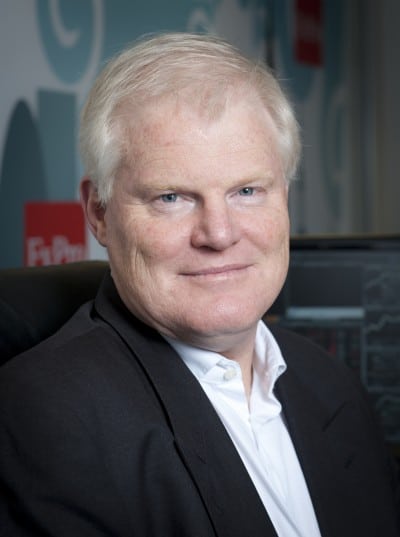The Federal Reserve has already taken the fiscal cliff into account, with QE3 (aka QE-infinity). Bernanke and his colleagues could extend Operation Twist, says Michael Derks of FxPro.
In the interview below, Derks discusses the cliff, the postponement of the “day of reckoning” for Greece’s debt and other topics that move currencies.
Michael joined FxPro in May 2010 having been previously at Deutsche Bank, Rothschild and Schroders. He is a multi-discipline investment and market strategist/economist with extensive expertise in FX, strategic and tactical asset allocation, fixed income, equities, property and alternative assets. An accomplished economic and investment writer and researcher, Michael holds a Bachelor of Economics degree from Macquarie University in Sydney.
1. Now that Greece has received the long-awaited tranche of aid in a deal that will not require euro-zone governments to take losses, how soon is the next crisis? When would Germany need to accept losses on loans to Greece?
The issue with Greece is that this deal, now that it is finalised, is another fudge – Greece has no realistic prospect of achieving the 120% of GDP target on debt by 2020 without some official sector participation. The latter is inevitable, but for now the day of reckoning has been postponed. With Europe, the next crisis is never far away”¦it could be any of Greece, Spain or France”¦
2. The FOMC meets for the first time after the elections on December 12th. Do you think that significant policy changes could be announced? Or would it rather wait and see how the fiscal cliff is resolved?
To some degree, the Federal Reserve has already ‘allowed’ for the fiscal cliff – and the uncertainty it has generated – through the announcement that it would be buying $40bn of agency MBS per month for the foreseeable future. With Operation Twist due to expire at the end of the year, the FOMC will need to decide at the next meeting whether it will extend this program (or not). Notwithstanding the recent improvement in the economy, and ahead of completion of the fiscal cliff talks, the Fed may want to extend Twist for another few months.
3. What data could persuade the SNB to remove the floor under EUR/CHF? The SNB has given no indication that it is prepared to abandon the EUR/CHF floor.
We shall get an update on its thinking when it releases the latest monetary policy assessment next month. In September, it reinforced its ‘utmost determination’ pledge, and observed that the currency remains too high (and is therefore weighing heavily on the economy).
4. The recent inflation report by the BoE resulted in higher expectations of QE in the UK. Could more QE in the UK weigh on the pound? Or is the effect minor?
Some members of the MPC are recognising, albeit belatedly, that there are significant limits to QE, and as such are hesitant to expand the Bank’s balance sheet any further at this stage. With the economy apparently growing again and the labour market doing surprisingly well, the MPC appears to believe it has some time to consider its options. It is also keen to observe its ‘funding for lending’ initiative. Sterling is not a real focus for currency markets right now – traders are more absorbed by the yen and the euro.
5. Recent Chinese PMIs have been better. Is the worst behind us on the ‘Chinese landing’? Or could the new political leadership reveal problems, as it happens so often with new governments in the West?
The Chinese recovery has started to look a little better recently, although how durable this improvement will be is another question altogether. From our perspective, the underlying growth rate of the economy has slowed and will continue to slow over coming years.

